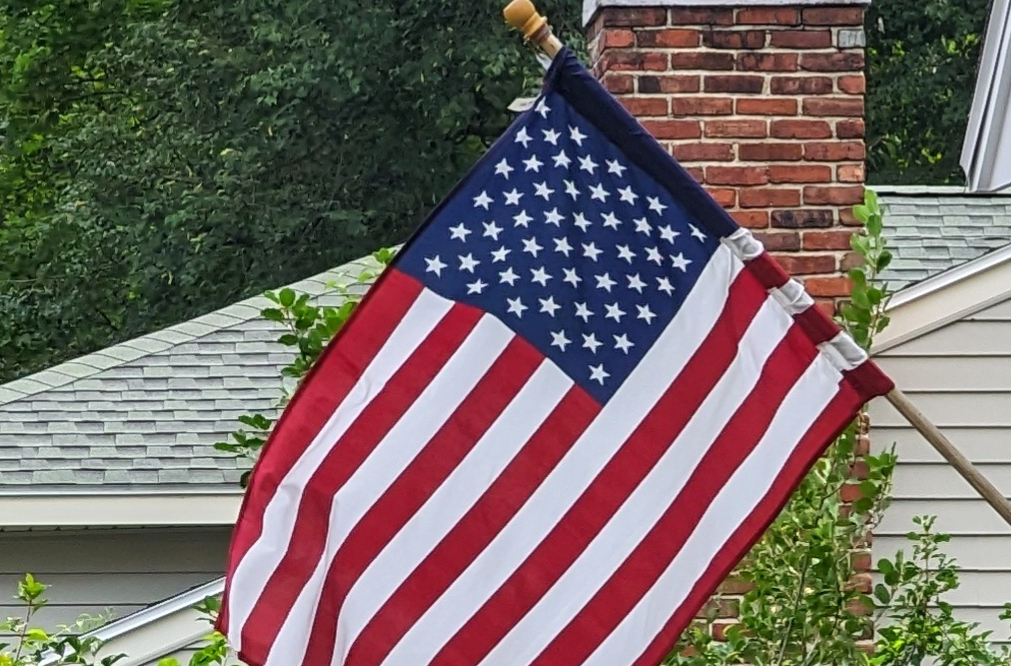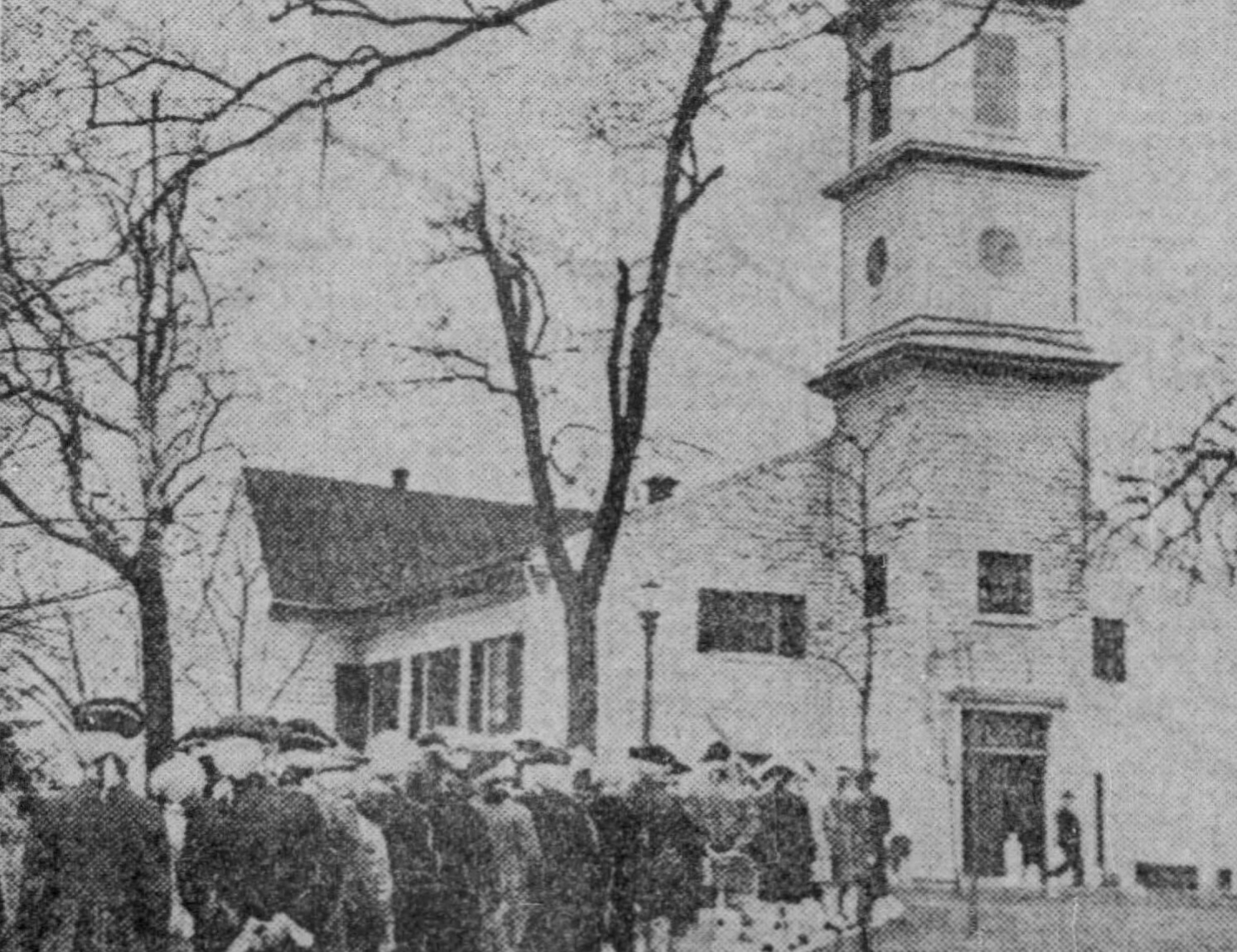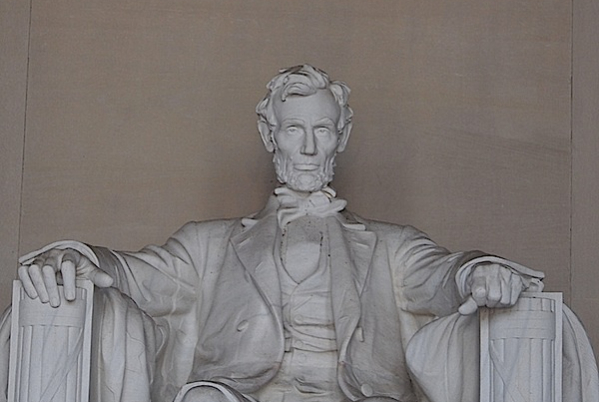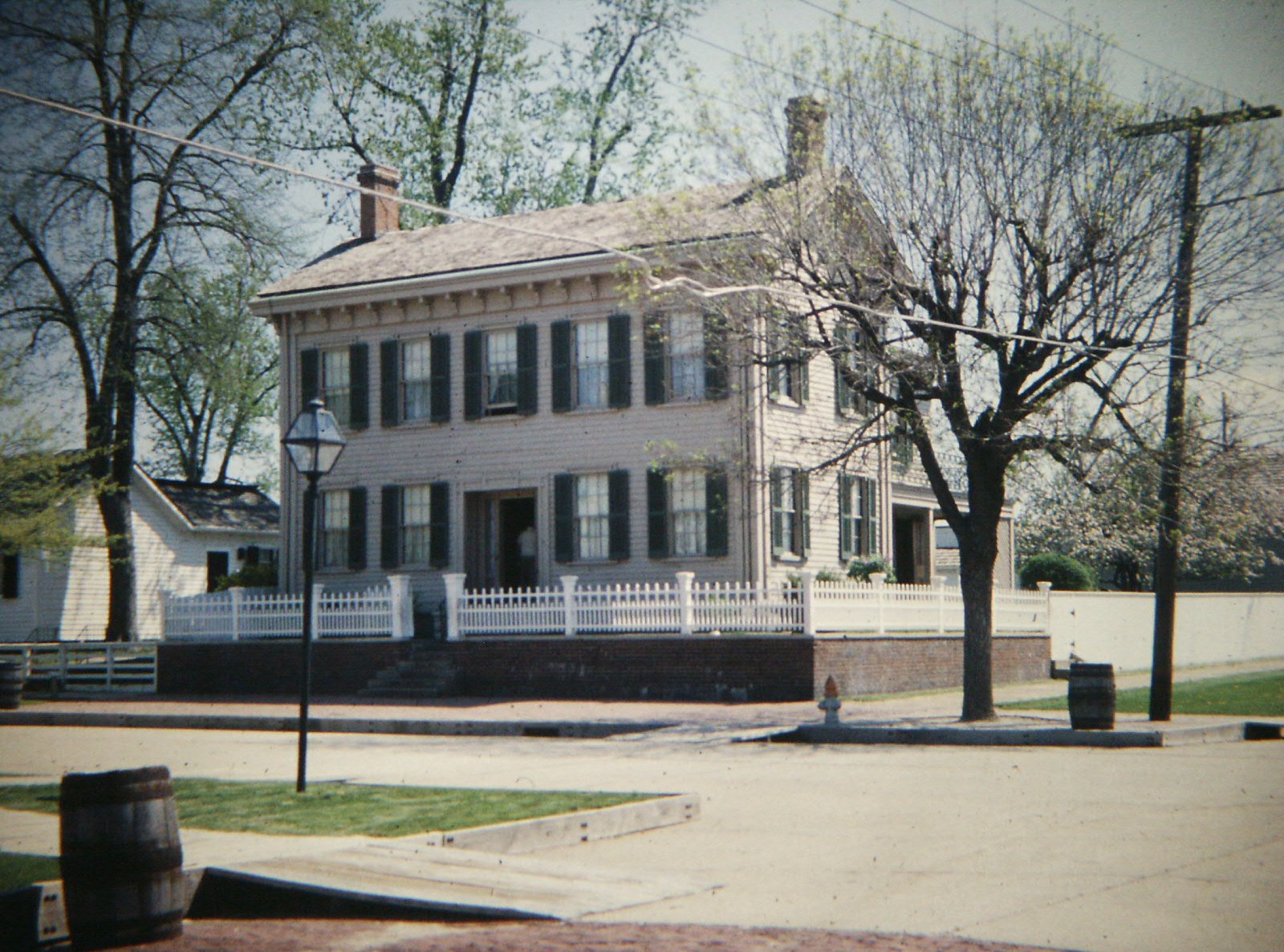
12th Annual Patrick Henry Awards & Dinner
MORE INFORMATION TO COME
THE 1776 SERIES
By: Hadley Arkes
n the night he was elected President in November 2008, Barack Obama addressed a vast throng in Grant Park in my hometown of Chicago and remarked that we had built this country “calloused hand by calloused hand, for 221 years.” Obama professed an admiration for Abraham Lincoln, but it was clear that he hadn’t understood – or accepted – Lincoln’s teaching. In contrast to Obama’s 221 years, Lincoln said at Gettysburg that “Four score and seven years” earlier our “fathers brought forth . . . a new nation.” Counting back, Obama found the beginning of the country in 1787, with the drafting of our current Constitution. But counting back, Lincoln took the beginning of the nation to 1776 and the Declaration of Independence. It was not merely the claim of independence; it was the articulation of that “proposition” as Lincoln called it, “the father of all moral principle” among us: that “all men are created equal,” that the only just government over human beings must draw its powers from “the consent of the governed.” Lincoln reminded us that the Union, the American republic, was older than the Constitution. The Constitution was made, as it said, for “a more perfect Union.”
Lincoln reminded us that the Union, the American republic, was older than the Constitution. The Constitution was made, as it said, for “a more perfect Union.”
For Lincoln, the nation began with that “first principle” that marked the character of the regime. The task of forming a Constitution was a matter of working out a structure of governance consistent with that principle. The first constitution, the Articles of Confederation, did not work well. The government couldn’t summon the wherewithal to support itself and defend the country against enemies foreign or domestic. Instead of integrating the separate states into a more unified nation, it set off centrifugal tendencies, driving the states farther apart with discriminatory tariffs and separate currencies. It was not the sense of a nation we would come to know, with the free movement of persons and goods across the boundaries of the states.
Lincoln recalled the biblical proverb that “a word fitly spoken is like apples of gold in pictures of silver” (Prov. 25: 11): The words fitly spoken were “all men are created equal,” which provided the “apple”:
The Union and the Constitution are the picture of silver, subsequently framed around it. The picture was made, not to conceal or destroy the apple; but to preserve it. The picture was made for the apple – not the apple for the picture.
The Constitution was made for the Union, not the Union for the Constitution. When the Founders took up the task of framing a new Constitution, they had to draw upon those principles of law and moral truths that were there – as they had to be – before the Constitution. If those principles were not there, to tell us of the forms of government that were better or worse, how would we know of just what institutions claimed a rightful authority to put in place those “positive laws” that we were obliged to obey? And over time, jurists found it necessary to appeal back to those principles that were there before the Constitution, in order to apply the Constitution sensibly to the cases coming before them. John Quincy Adams would argue that the “right to petition the government” was simply implicit in the logic of a free government: it would be there even it hadn’t been set down in the First Amendment. By the same reasoning, it would be there even if there were no First Amendment; it would be there even if there were no Constitution.
When the Founders took up the task of framing a new Constitution, they had to draw upon those principles of law and moral truths that were there – as they had to be – before the Constitution.
But if that is all true, people will raise the question: Are you saying that we don’t need a Constitution? Of course we do, for it is a matter again of the “structure” of governance. It is utterly critical to know just whom the military will be expected to obey if a president dies in office. And we would certainly want to know if any state may enter a treaty or alliance or make its territory available as a military and naval base for a foreign power. Even more recently there was a jolting bump in the road to the enactment of Obamacare, when the Constitution delivered up, for the 111th time, in peace and war, a midterm election. And no one thought of litigating over this working of the Constitution.
But what of the beginning of everything in that first principle itself? Obama has affected the manners of the urbane half-educated in our own day as he blithely dismisses the notion that “all men are created equal” has ever been a real truth, let alone one of those anchoring, necessary truths that furnished the moral ground of this government. He has fallen in readily with the doctrines of “historicism”: that “truths” can be known only in that historical period when they are believed to be true; that there are no moral truths that hold across the ages – except of course for the “truth” of historicism. And yet Lincoln and the Founders did take that proposition seriously. Lincoln regarded it as one of those “abstract truths applicable to all men and all times.”
Only one kind of creature understands what it means to consent to a contract – and to honor a commitment even when it no longer accords with his self-interest.
Alexander Hamilton went to the root in explaining that point when he wrote about those “first principles, or primary truths on which all subsequent reasonings must depend.” They contained an “internal evidence which, antecedent to all reflection and combination command the assent of the mind.” They were grasped per se nota, as true in themselves, as we grasp the “law of contradiction”: that two contradictory propositions both cannot be true. Then how would one grasp in that way that anchoring principle of the American regime? The answer would be quickly revealed if we posed this question to anyone we know: Why is it that, in this age of animal liberation, we are not signing labor contracts with our horses and cows – or seeking the informed consent of our household pets before we authorize surgery on them? We can expect any person we encounter to be quite puzzled by the question – and wondering why we are asking it. But what the ordinary man grasps already is that animals cannot reason about the terms of a contract, give a promise, and keep their commitments. Only one kind of creature understands what it means to consent to a contract – and to honor a commitment even when it no longer accords with his self-interest.
The ordinary man who grasps at once that simple thing takes hold of the principle in the Declaration. As the argument ran, no man is by nature the ruler of other men in the way that God is by nature the ruler of men and men are by nature the ruler of dogs and horses. Anyone who denies that, said Jefferson, had to assume that the “mass of mankind” had been born “booted and spurred, ready to ride them.”
The question, as Lincoln said, was whether the black man “is not or is a man. If he is not a man … he who is a man may… do just as he pleases with him. But if the negro is a man, is it not … a total destruction of self-government to say that he too shall not govern himself?”
And so, when the question was put, “Where in the world would it be wrong for human beings to be ruled in the way that dogs or horses are ruled?” The answer was: that would be wrong anywhere in the world – and at any time – where that difference in nature remains the same. Thus the notion of certain enduring rights, grounded in an enduring nature, or “natural rights.”
But as Lincoln recognized, slavery was in conflict with those deep premises of the American regime. And that disturbing truth was recognized in the South as well as the North.
But as Lincoln recognized, slavery was in conflict with those deep premises of the American regime. And that disturbing truth was recognized in the South as well as the North. A group of slaveowners, meeting at Darien, in Southern Georgia, declared in 1775 their “disapprobation and abhorrence of the unnatural practice of slavery in America . . . debasing part of our fellow creatures below men, and corrupting the virtues and morals of the rest, and is laying the basis of the liberty we contend for . . . upon a very wrong foundation.” They vowed then to emancipate their own slaves.
After the war, the move to gradual emancipation swept through the North, and by 1810 the number blacks freed through manumission in the South exceeded the number of free blacks in the north. The famous black leader, Frederick Douglass would say later that the Founders had made the right judgment: They had to accept slavery in the South in order to have the Union. But if those southern states had formed a separate nation, they would have expanded a slave empire into the Caribbean or beyond. It was far better to bring the slave states into a Union, or framework, in which slavery was rejected in point of principle. The word slavery would appear nowhere in the Constitution; as Lincoln said, only “covert” language was used. But at the same time, the framers would block the import of more slaves from abroad (after 1808) and bar its extension into the western territories. As Lincoln said, all of the marks here suggested a policy, not of endorsing and encouraging, but discouraging and compressing, with the hope of putting slavery “in the course of ultimate extinction.”
The famous black leader, Frederick Douglass would say later that the Founders had made the right judgment: They had to accept slavery in the South in order to have the Union.
As Justice George Sutherland reminded us in the 1930s, the Union was older than the Constitution, and the right to defend the country would be there under any Constitution. But defending the country meant the need to plan military operations, while concealing those operations from potential enemies. There could be a need, then, of course, to deploy spies and secret agents. These are the things that are, by nature, “executive” functions. And they continue to be distinctly executive functions even if they are directed by John Jay as Secretary of Foreign Affairs, through a committee in Congress, under the Articles of Confederation. When the Iranian revolutionary government seized American hostages in 1979, the Carter Administration froze Iranian assets in the United States. That could not be done by the Congress, after holding hearings, for those assets would have been gone by the time the hearings had concluded. If this strategic action were to be done at all, then in Macbeth’s words, “‘twere well / It were done quickly.” Only the executive could act with dispatch in a crisis of this kind.
At the beginning of the Civil War, the novelist Richard Henry Dana defended, in the Supreme Court, the authority of President Lincoln to order a naval blockade of the South. Dana observed that a Declaration of War was an artifact, a thing created under the positive law of a Constitution. But war, he said, was a fact. And could it really be sensible to assume that an enemy would be decorous enough to hold back its attack until the Congress could be assembled to declare war? Or was it more sensible to conclude that the authority to defend the country had to fall to that one branch of government that was never “out of town, or out of session”: namely, the executive, charged with the ongoing administration of the laws.
. . . it is one of the deepest principles in the American regime, running back to the revolution, that the safety of the American people cannot be put in the hands of officials in Westminster, or unelected judges, who bear no direct responsibility to the people whose lives are at stake.
In that vein, it is one of the deepest principles in the American regime, running back to the revolution, that the safety of the American people cannot be put in the hands of officials in Westminster, or unelected judges, who bear no direct responsibility to the people whose lives are at stake. That is why some of us would argue that it was a profound mistake for Justice Anthony Kennedy and four of his colleagues to inject the judges onto the battlefield in Iraq in the Boumediene case (2008). Actions taken in the heat of battle may not indeed satisfy a demanding test of “due process of law.” But judges are in no decent position to second guess because they bear no responsibility for the lives that may be lost.
Before the Civil War there was in this country another civil war – in Rhode Island. Two different legislatures and governors were put forth to represent the legitimate government of Rhode Island. President John Tyler signaled the intention to intervene on the side of the established government, and that signal was enough to induce the armed opposition to stand down. Chief Justice Roger Taney would later explain (in Luther v. Borden, 1842) that a crisis of this kind could not be handled by trial court, with the time it takes to select a jury, hold a trial, and reach a verdict. Nor could an appellate court handle the matter by calling for briefs, hearing the arguments, and retiring to chambers to write opinions. What came through was an unseasonable but inescapable truth: that it is not mainly the courts that sustain a regime of constitutional freedoms. It is rather the “sword of the law” that preserves that civil peace in which courts are free to render a more scrupulous justice, with those procedures more exacting and more fitting the function of judges.
We have seen, in recent years, presidents and administrations blocked in their initiatives by judges operating with nationwide injunctions. And yet we have also seen, on matters ranging from the launching of wars to the steady “administration of the laws,” that the executive will hold a rightful authority to act at grave moments outside the reach of the legislative or judicial branches. If that leaves people uneasy, we think of Thomas Hobbes’s taunt: If you are uncomfortable with the notion of sovereign power, you will have to call forth some other authority to limit it. And whatever power you call forth will be, then, even more sovereign yet. If one doesn’t trust an American president in conducting war and foreign affairs, the solution cannot be had by putting authority in the hands of unelected judges, who cannot be held responsible for their acts.
Even a president bound up with a thick body of laws will be compelled at times to act well beyond the restraints of the law. The question will always arise then how we can be sure that a president, freed in this way, will use his power to preserve this regime and our freedoms, and not create a new regime built around himself. The only answer to that old question remains the same: the only ground of assurance lies in the character of that person we elevate to the highest office. We would find the deepest assurance in a man who could say, as Lincoln said to a contingent of soldiers, that “I happen temporarily to occupy this big White House. I am a living witness that any of your children may look to come here as my father’s child has.” This was a man whose loyalty to the regime ran to the deepest levels of his own character. The question for us now is whether we cultivate men like that anymore – and whether we have cultivated among ourselves the wit to recognize them when we see them.
Hadley Arkes is the Ney Professor of Jurisprudence at Amherst College where he taught for 50 years. He is also the Founder/Director of the James Wilson Institute on Natural Law and the American Founding in Washington, D.C. Among his numerous books are First Things (1986) and Constitutional Illusions and Anchoring Truths (2010). He is completing a book to be entitled Mere Natural Law.

MORE INFORMATION TO COME

By Mike Sabo With new institutes emerging at colleges and universities in Florida, Ohio, Utah, Tennessee, North Carolina, Texas, and elsewhere, civics education may be

By John A. Ragosta On March 23rd in 1775, Patrick Henry rose at St. John’s Church in Richmond, Virginia, to urge his countrymen to arm

By Brian Matthew Jordan One hundred and fifty-nine years ago this Sunday, a 26-year-old white supremacist and Confederate sympathizer named John Wilkes Booth pointed a

By Jonathan W. White Historians and the general public regularly rank Abraham Lincoln as America’s greatest president. There is little doubt that he is widely

The Patriot Week Foundation achieved its 501(c)(3) status in December 2012 and has moved forward by building a sustainable, nonpartisan organization. Currently staffed with an Operations Manager and Education Consultant, the Patriot Week Foundation will be adding to its complement of talent shortly.
This unique, historically grounded, non-partisan approach is desperately needed in our toxic political environment. In no small measure, the fate of the nation depends on it.
Get in Touch
Fill out the form, our team will get back to you ASAP.